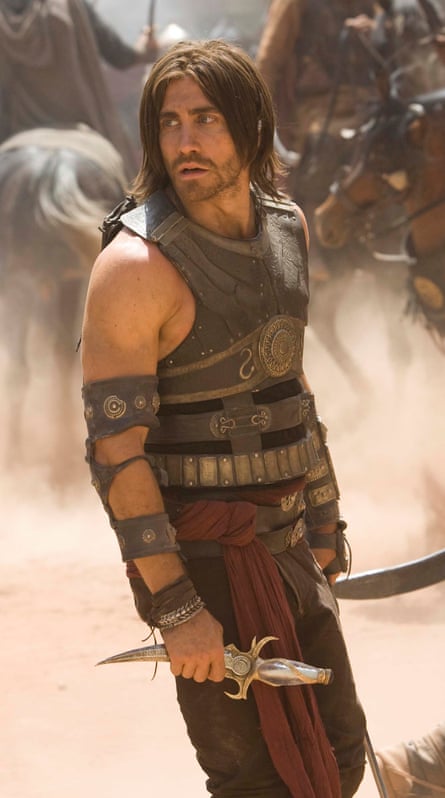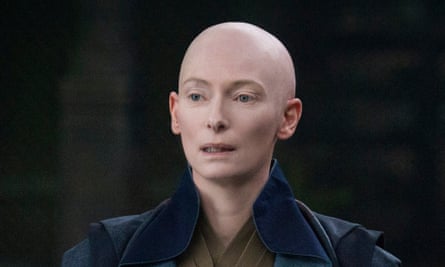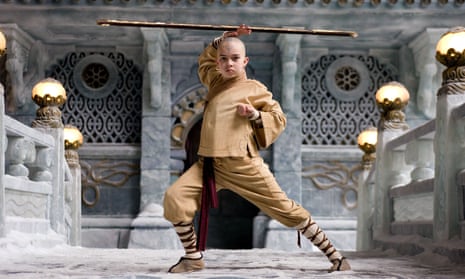In its original sense, “whitewashing” meant covering or cleaning something up. In today’s cultural landscape, it is a stain that won’t rub off. Now, “whitewashing” describes the habit of casting white actors to play non-white characters, often to shoehorn in a star, sometimes out of racial insensitivity, invariably to the detriment of people (and especially actors) of colour.
Film and television used to be able to get away with whitewashing, but when the word is associated with a project these days it tends to stick. It comes up at every press conference, it generates a cloud of Twitter memes. The signs point to it starting to make an impression on the people who make movies. On Monday, in what could be a pivotal development, British actor Ed Skrein announced he would be stepping down from his role in Hellboy, a reboot of the comic-book franchise, just days after his casting had been announced.

In the comic books, Skrein’s would-be character, Ben Daimio, was half-Japanese, so his casting was met with protest, particularly from Asian-Americans. Skrein listened to them. “It is clear that representing this character in a culturally accurate way holds significance for people, and that to neglect this responsibility would continue a worrying tendency to obscure ethnic minority stories and voices in the arts,” Skrein wrote on Twitter. His decision has been applauded by many, including Hellboy creator Mike Mignola. “Thank you @edskrein very nicely done … ” he tweeted. In addition, Hellboy’s producers have committed to looking to “recast the part with an actor more consistent with the character in the source material”.
“I was actually blown away by the news,” says Keith Chow, editor of the Nerds of Color blog, which has campaigned against whitewashing for many years. “He is probably the first actor to do something like this in such a public way. I was joking with friends that Ed Skrein’s following on Asian Twitter just multiplied exponentially.”
The “worrying tendency” Skrein references has been standard Hollywood practice since the silent era, when stars such as Douglas Fairbanks and Rudolph Valentino would play romantic Arabs. But it has come under fresh scrutiny through high-profile cases including sci-fi film Ghost in the Shell, in which Scarlett Johansson played a “Japanese” cyborg in a Hollywoodised adaptation of a Japanese manga and anime, and Marvel movie Doctor Strange. The latter starred Tilda Swinton as a Himalayan mystic, who was an Asian man in the original comic books. There’s also Emma Stone’s “Chinese-Hawaiian” character in Aloha. The usual response from the studios to whitewashing accusations has been simply to tough it out and limit the spread of the stain by denial.

Instead – and perhaps this was playing on Skrein’s mind – it is now the actors who regularly find themselves having to defend the practice. Both Johansson and Swinton had to field questions from the press about whitewashing and were often forced into awkward responses. “She is essentially identity-less,” Johansson said of her Ghost in the Shell heroine. “I would never attempt to play a person of a different race, obviously.” Swinton, meanwhile, took the position that her playing Doctor Strange’s Ancient One was actually less offensive than an Asian man playing him – which would have amounted to ethnic stereotyping.
Thus the whitewashing debate is often diverted into the maze of identity politics and political correctness. The response to these issues from a certain portion of the (white) public often goes along the lines of “it’s only a movie” and “but it’s OK for non-whites to portray our founding fathers in Hamilton?” followed by something vague about “social justice warriors”. But whitewashing is a clear-cut case of non-affirmative action: in societies that purport to believe in equality of opportunity, representation matters.
As actor William Yu posted in response to Skrein’s original casting in Hellboy: “With every instance of whitewashing, an (Asian-American) is subliminally told that they are not worth attention, not worth a place in this society.” It is not just about whitewashing characters; it is also about whitewashing certain peoples’ culture and history by appropriating it for a movie and then erasing the non-white presence. That was the problem with Ghost in the Shell and many other recent offerings, including Netflix’s adaptation of Marvel’s Iron Fist – a white superhero who is better versed in Asian philosophy and martial arts than actual Asians. It amounts to the same thing: a way to include white people at the expense of non-white ones.
These issues arise every time a foreign property is snapped up by the content-hungry industry: Netflix recently defied objections and transposed Death Note, a hit Japanese manga, to Seattle. Robert Rodriguez’s forthcoming Alita: Battle Angel reinterprets another Japanese sci-fi story, with a cast short of Japanese names, but including Michelle Rodriguez, Christoph Waltz and, funnily enough, Ed Skrein.
The industry excuse for whitewashing is often that bankable star names are needed to make a project commercially viable. Yet few of these examples have been hits. Ghost in the Shell was a box-office flop and its producers acknowledged that “the conversation regarding casting impacted the reviews”. Death Note and Iron Fist were not critical or commercial successes, either. The idea that whitewashing is good business is a myth, says Chow: “That cover can only last so long. Once you realise all these movies, going back to The Last Airbender, Aloha, Prince of Persia ... financially, they have been failures. It is a lesson that should have been learned 10 years ago.”

Skrein’s departure from Hellboy deserves applause, but actors should not have to be making these decisions. The onus should be on those making the movie and casting the characters. Hellboy might have rubbed out its stain by pledging to cast an Asian actor instead of Skrein, but it is still being made by the same people who thought nothing of whitewashing in the first place. “Maybe this is the fever finally starting to break,” says Chow. “But, right now, this is the exception and not the rule.”
- This article was amended on 30 August 2017 to reinstate two sentences that were removed in the editing process.

Comments (…)
Sign in or create your Guardian account to join the discussion